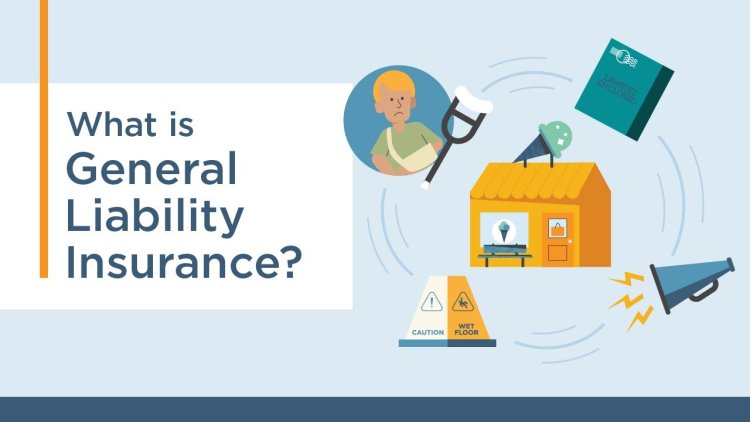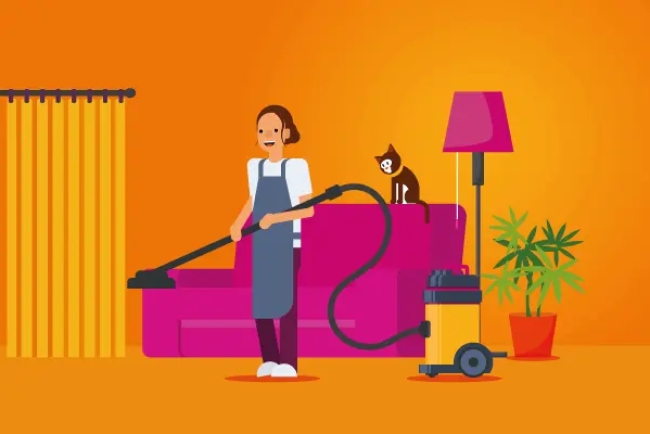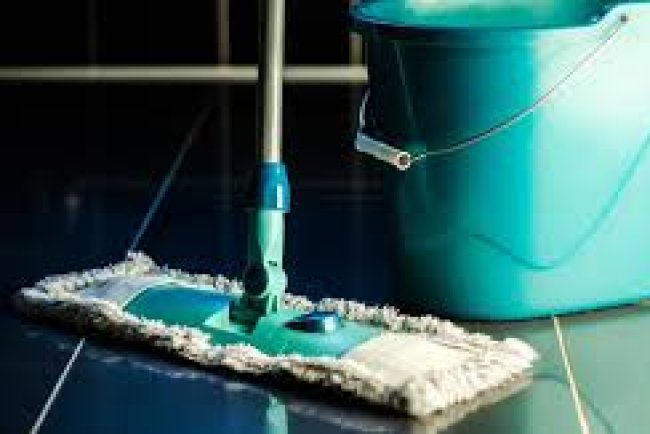Running a cleaning business comes with its own set of risks. Whether it's a small operation or a larger, established company, accidents can happen. From damaging a client's property to an employee injury, there are several liabilities that you must consider. One essential component to safeguard your business is general liability insurance. In this article, we’ll break down cleaning business insurance costs, focusing on general liability insurance, to help you understand what factors influence the cost and how you can manage your expenses.
What is General Liability Insurance for a Cleaning Business?
General liability insurance is a type of coverage designed to protect businesses from third-party claims involving bodily injury, property damage, and personal injury. For cleaning businesses, these risks are common, making liability insurance a critical investment.
Why Do You Need General Liability Insurance for Your Cleaning Business?
-
Protection from Accidents: Cleaning companies work in various environments where accidents are bound to happen. If a cleaner accidentally breaks an expensive vase or spills a chemical that damages a carpet, general liability insurance covers the associated repair or replacement costs.
-
Client Lawsuits: If a client slips and falls after a floor is freshly cleaned or if the cleaning process results in damage to their property, they might sue the cleaning company. Without liability insurance, these legal costs could severely damage the business financially.
-
Professional Image: Many clients require cleaning companies to carry liability insurance before signing a contract. Having this insurance not only protects you from unforeseen claims but also boosts the credibility of your business.
Factors Affecting General Liability Insurance Costs for Cleaning Businesses
The cost of general liability insurance for a cleaning business is influenced by multiple factors. Understanding these factors can help you find the right balance between adequate coverage and affordable premiums.
Size of Your Cleaning Business
Larger cleaning businesses with more employees and higher revenue often pay more for insurance than smaller operations. This is because they have more exposure to risk. For example, if your business cleans commercial offices with many employees, the chances of something going wrong increase, hence raising the insurance cost.
The Type of Cleaning Services You Provide
The type of cleaning services offered directly impacts your insurance costs. A business offering basic cleaning services such as vacuuming and dusting in residential homes might pay less than one that handles industrial cleaning with hazardous chemicals. The risk involved in each type of cleaning dictates the cost. Specialized services such as mold removal, deep carpet cleaning, and high-rise window cleaning are considered higher risk and typically have higher insurance premiums.
Location of Your Business
The location of your cleaning business plays a crucial role in determining insurance premiums. If you're operating in a major city with high property values or a region prone to frequent lawsuits, your insurance cost will likely be higher. For example, a cleaning business operating in densely populated urban areas like New York City will have different insurance rates than one based in a rural area with lower risks.
Claims History
An insurance company will assess your business’s claims history before determining the premium. If your cleaning company has had several insurance claims in the past, especially for property damage or personal injury, your rates may increase. On the other hand, businesses with a clean claims record will benefit from lower premiums.
Coverage Limits
The more coverage you need, the higher your premiums will be. General liability insurance policies typically offer a range of coverage limits, starting from $100,000 to $2 million or more. If you're working with larger, high-net-worth clients or expensive properties, it may be wise to opt for a higher coverage limit, which will also increase your costs.
Policy Deductibles
A deductible is the amount you agree to pay out of pocket before your insurance coverage kicks in. Choosing a higher deductible can lower your monthly premium, but you’ll have to pay more upfront if a claim arises. Balancing your deductible with your premium is a key consideration in managing your insurance costs effectively.
Additional Coverage
Many cleaning businesses choose to add extra coverage to their general liability policy, such as workers' compensation insurance, commercial auto insurance, and tools/equipment coverage. While these added policies can enhance protection, they also contribute to the overall cost of your insurance package.
How Much Does General Liability Insurance Cost for Cleaning Businesses?
The cost of general liability insurance can vary widely based on the factors mentioned above, but on average, cleaning businesses pay between $400 to $1,500 annually for coverage, depending on their size and the level of risk involved in their operations.
-
Small Cleaning Businesses: If you’re a solo cleaner or operate a small residential cleaning company with only a few employees, your annual general liability insurance could cost between $400 and $800.
-
Medium-Sized Cleaning Businesses: Cleaning businesses with more employees or those that provide services to commercial clients can expect to pay between $800 and $1,200 per year.
-
Large Cleaning Companies: Larger businesses with multiple employees, high-value contracts, and commercial or industrial cleaning services might pay anywhere from $1,200 to $2,000 or more annually.
It’s important to shop around and compare quotes from different insurance providers to ensure you get the best rate for your specific business needs.
Tips to Lower Your General Liability Insurance Costs
While insurance is a necessary expense for any cleaning business, there are ways to manage and reduce your premiums. Here are some tips to help lower your general liability insurance costs:
Bundle Your Policies
Many insurance companies offer discounts if you bundle multiple types of coverage. For example, combining general liability insurance with workers’ compensation or commercial auto insurance may help you save on your total premium.
Maintain a Clean Claims Record
Avoiding claims can significantly reduce your insurance costs over time. Implement strict safety protocols, provide adequate training for employees, and use safe, reliable equipment to minimize accidents and claims.
Adjust Your Deductible
If you’re confident in your ability to manage smaller claims, consider choosing a higher deductible. This can lower your monthly premium. However, be sure to assess your financial ability to cover the deductible in the event of a claim.
Review Your Coverage Annually
As your business grows or changes, your insurance needs may shift. Reviewing your insurance policy annually ensures that you’re not overpaying for coverage you no longer need or underinsuring your business. If you’re downsizing or taking on less risky cleaning jobs, this could be an opportunity to lower your premium.
Improve Workplace Safety
Implementing safety measures can significantly reduce your insurance costs. Make sure your employees are trained in using cleaning equipment and handling chemicals safely. This reduces the likelihood of accidents, which can, in turn, lower your insurance rates.
The Benefits of Investing in General Liability Insurance for Cleaning Businesses
While general liability insurance is an added expense, it provides substantial benefits that make it a worthwhile investment:
-
Financial Protection: General liability insurance ensures that your business is protected from financial losses arising from lawsuits or damage claims. Without it, one costly lawsuit could severely impact or even shut down your business.
-
Peace of Mind: Knowing that you’re covered in the event of an accident or claim allows you to focus on growing your business without constantly worrying about potential liabilities.
-
Client Trust: Having proper insurance coverage can help build trust with clients, as many will only hire cleaning companies that have general liability insurance. It shows that your business is professional and responsible.
Investing in General Liability Insurance is Crucial for Cleaning Businesses
The cost of general liability insurance for your cleaning business depends on various factors, including your business size, the services you offer, and your location. While it can be a significant expense, the financial protection and peace of mind it offers make it essential. By understanding the factors that influence insurance costs and taking steps to mitigate risks, you can find affordable coverage that protects your business from unexpected liabilities.
When choosing your general liability policy, consider consulting with an insurance agent to tailor the coverage to your specific needs. Shopping around and regularly reviewing your policy can help ensure you’re getting the best deal possible. Ultimately, investing in general liability insurance not only protects your business but also positions it for long-term success.




















